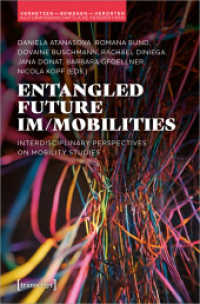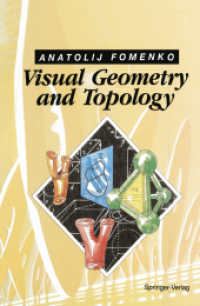Full Description
For many students, learning mathematics in the middle grades represents a watershed activity. If they fall behind or fail at this point, they are unlikely to recover and to pursue a career in the sciences or other mathematics-dependent occupations. Originally published in 1988, the authors reveal at least two of the reasons for this watershed experience. First, the content itself is much more complex than that at the primary grades, a complexity that was only then being fully appreciated. Second, conventional instruction often is based on faulty assumptions about the way in which the content is learned. The chapters present the latest understanding of the nature of the mathematics content in the middle grades and the processes by which it is learned.
Contents
Preface. Series Forward J. T. Sowder. Introduction: Capturing the Major Themes J. Hiebert & M. Behr. Part I: Analyses of Subject Matter 1. Multiplicative School Word Problems: Theoretical Approaches and Empirical Findings P. Nesher 2. Intensive Quantity and Referent Transforming Arithmetic Operations J.L. Schwartz 3. Mathematical Meaning and Applicational Meaning in the Semantics of Fractions and Related Concepts S. Ohlsson 4. Proportional Reasoning R. Lesh, T. Post & M. Behr. Part II: Theoretical Analyses of Emerging Competence 5. Children's Construction of Number Sequences and Multiplying Schemes L. P. Steffe 6. Multiplicative Structures G. Vergnaud 7. Personal Knowledge of Rational Numbers: Its Intuitive and Formal Development T. E. Kieren. Part III: Effects of Conventional and Experimental Instruction 8. Mental Computation and Number Comparison: Their Roles in the Development of Number Sense and Computational Estimation J. T. Sowder 9. Ratio and Proportion K. Hart 10. Constructing and Using Meaning for Mathematical Symbols: The Case of Decimal Fractions D. Wearne & J. Hiebert 11. A Developmental Approach to the Identification and Teaching of Central Conceptual Structures in Mathematics and Science in the Middle Grades R. Case & R. Sandieson 12. Summary Comments: Meaning in Middle Grade Number Concepts K. Fuson 13. Summary Comments: Developing a Research Agenda for Mathematics in the Middle Grades R. Case. Participants.








